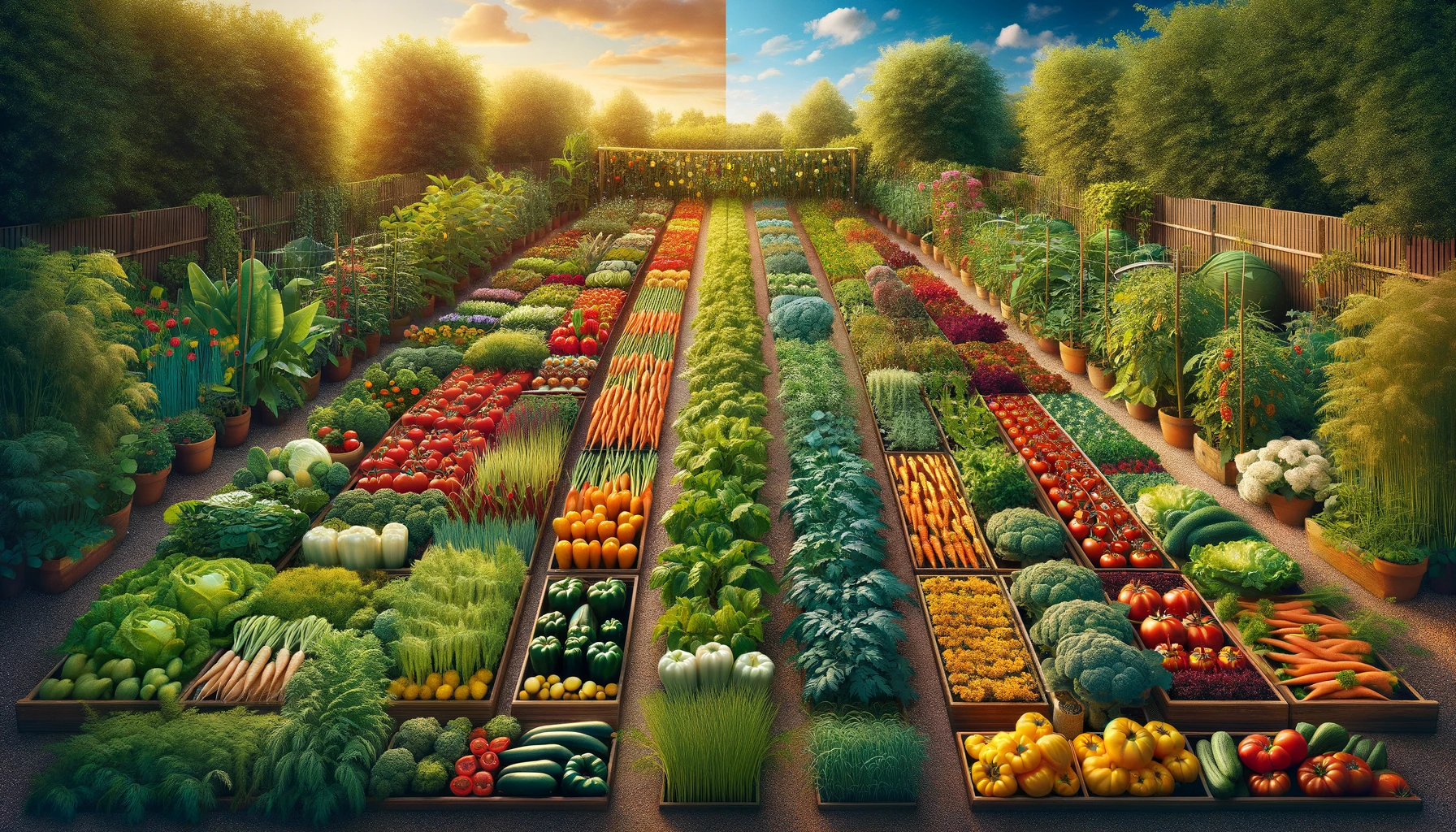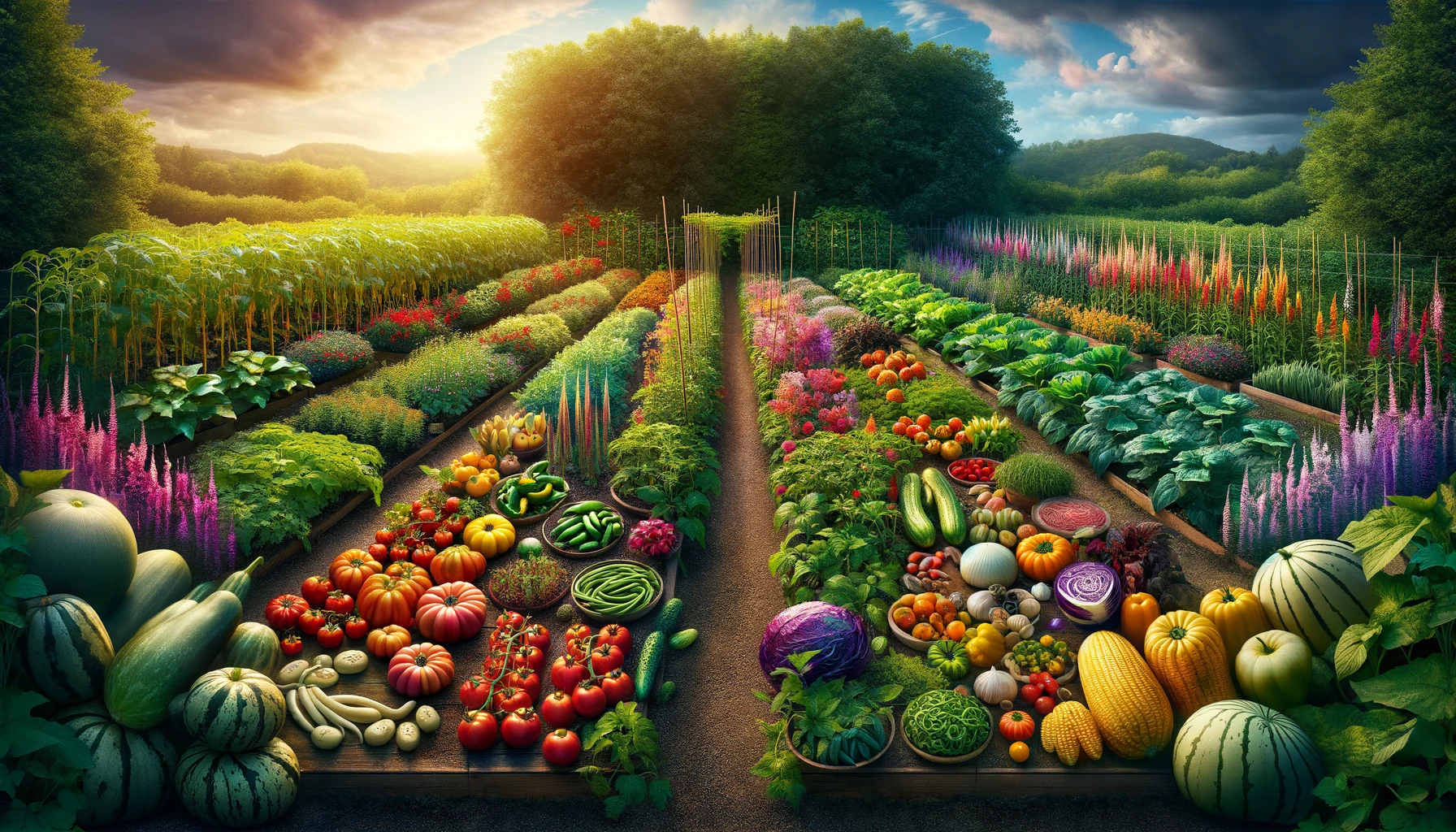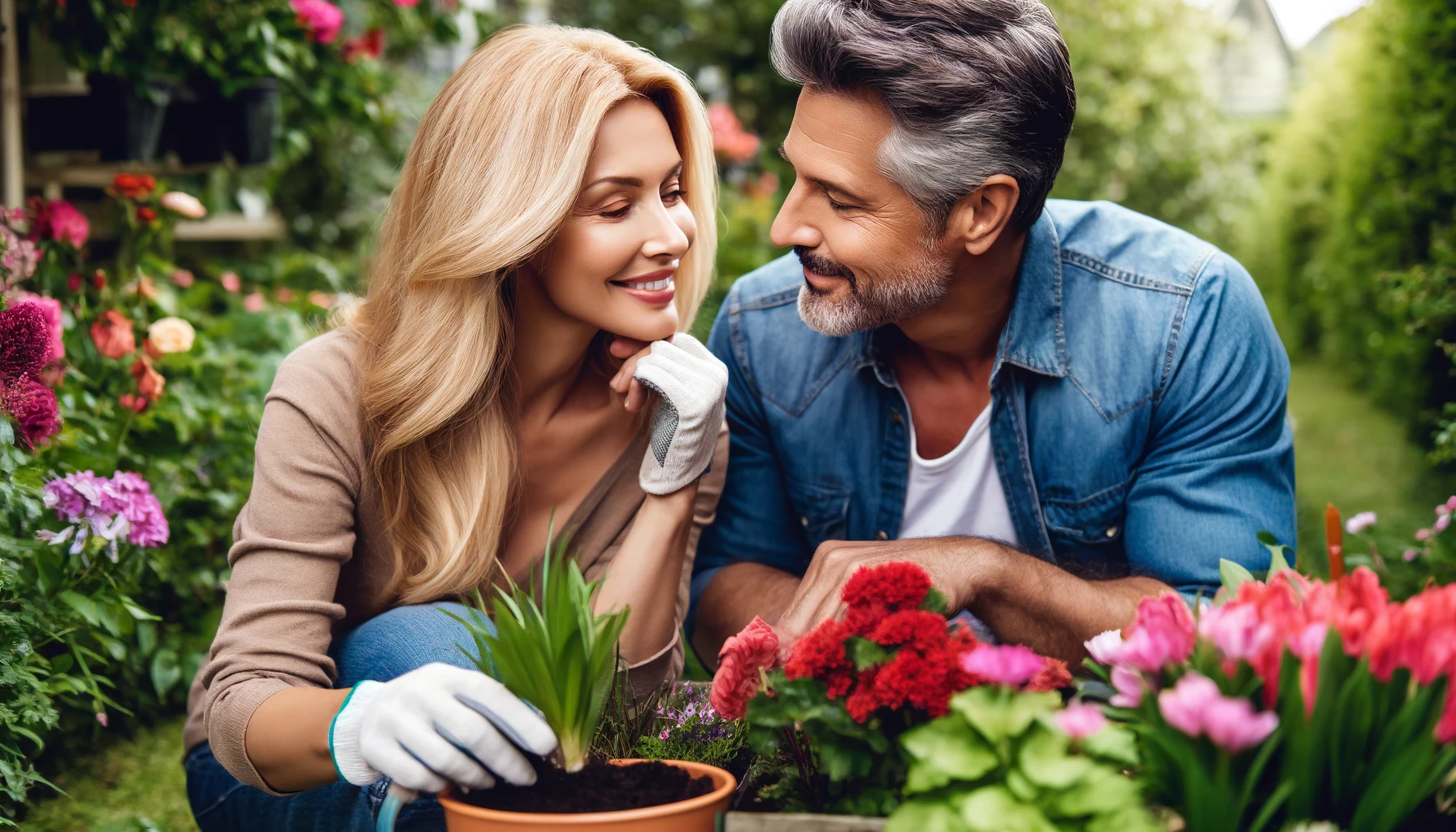Heirloom vs. Hybrid Seeds: the Difference for Your Garden
The decision between planting heirloom and hybrid seeds is an important decision for many gardeners.So what is the difference between them and which one is better to choose?
Heirloom and Hybrid Seeds
Defining Heirloom Seeds
Heirloom seeds are the guardians of our agricultural heritage. These seeds have been cultivated for at least 50 years, and they are open-pollinated. That means that they reproduce naturally. Heirloom seeds carry the stories and flavors of diverse cultures and epochs.
The Emergence of Hybrid Seeds
In contrast, hybrid seeds are a product of modern agricultural innovation. Developed through the controlled cross-breeding of parent plants, hybrids aim to enhance specific traits, e.g., yield, size, and disease resistance. This process, which can take several plant generations to perfect, results in seeds that produce uniform plants with predictable characteristics.

Characteristics of Heirloom Seeds
Unique Traits and Biodiversity
Heirloom seeds are celebrated for their unique flavors, colors, and shapes, offering a diversity that is often absent in commercially produced crops. This genetic variety enriches our diets and contributes to the biodiversity necessary for resilient ecosystems. Heirloom plants often possess an ability to adapt to local growing conditions and develope resistance to pests and diseases over time.
Advantages of Heirloom Seeds
Taste and Nutritional Value
Many gardeners and chefs favor heirlooms for their superior flavors and nutritional profiles. The depth and complexity of taste found in heirloom fruits and vegetables are often unmatched by their hybrid counterparts, making them a preferred choice for culinary use.
Seed Saving and Adaptability
One of the most empowering aspects of growing heirlooms is the ability to save seeds from year to year. This practice reduces the cost of gardening and allows plants to evolve and become more attuned to the specific conditions of your garden. This adaptability can lead to more robust and resilient plants.
Hybrid Seeds: Modern Marvels in Gardening
The development of hybrid seeds represents a significant leap forward in agricultural science, offering gardeners and farmers alike the opportunity to cultivate plants optimized for specific traits. Understanding the characteristics and benefits of hybrid seeds can illuminate how they complement the rich tapestry of biodiversity provided by heirloom varieties.
Characteristics of Hybrid Seeds
Engineered for Excellence
Hybrid seeds are created through the deliberate cross-pollination of two different parent plants, each selected for desirable traits such as disease resistance, growth habit, or productivity. This process yields offspring that inherit the best qualities from both parents, resulting in plants that are often more vigorous and reliable than their progenitors.
Uniformity and Disease Resistance
One of the hallmark features of hybrid plants is their uniformity. For gardeners seeking consistency in growth, appearance, and ripening times, hybrids offer a level of predictability that can be crucial for both aesthetic garden design and efficient crop management. Moreover, many hybrids are bred to resist specific pests and diseases, reducing the need for chemical interventions and supporting a healthier garden ecosystem.
Advantages of Hybrid Seeds
Boosted Productivity and Consistency
The targeted breeding that gives rise to hybrid seeds can lead to significantly increased yields, making them an attractive option for those looking to maximize their garden's output. The consistency in plant size, fruiting time, and quality can also simplify the gardening process, offering a more controlled and predictable growing experience.
Tailored to Challenges
Hybrids can be specially developed to overcome particular challenges, such as climate extremities, soil conditions, or limited space. For urban gardeners or those in regions with specific environmental constraints, hybrid seeds can provide tailored solutions that might not be achievable with heirloom varieties alone.
Considerations for Gardeners
When choosing between heirloom and hybrid seeds, gardeners should consider their gardening goals, preferences, and the specific conditions of their growing environment.
Garden Goals and Plant Performance
If preserving genetic diversity and experiencing unique flavors are your priorities, heirloom seeds might be your preferred choice. However, if you're focused on achieving high yields, consistent results, and battling specific gardening challenges, hybrid seeds could offer the solutions you need.
Seed Selection and Garden Planning
Regardless of whether you choose heirloom or hybrid seeds, selecting varieties that are well-suited to your local climate and soil conditions is crucial. Consider your garden's sunlight exposure, moisture levels, and any pest or disease pressures when making your selection. Planning your garden layout and choosing companion plants can also enhance the success of both heirloom and hybrid varieties.
Nurturing Sustainability and Biodiversity: The Role of Heirloom and Hybrid Seeds
The choice between heirloom and hybrid seeds extends beyond personal or practical gardening preferences—it touches on broader themes of sustainability, biodiversity, and our relationship with the natural world. Understanding the impact of these choices can empower gardeners to contribute positively to our planet's ecological balance and future food security.
Impact on Sustainability
Heirloom Seeds: Guardians of Genetic Diversity
Heirloom seeds are invaluable for preserving genetic diversity, which is crucial for food resilience and adaptability. By maintaining a wide variety of crops, gardeners can help ensure that our agricultural system remains robust in the face of changing environmental conditions and emerging pests or diseases. The practice of saving and sharing heirloom seeds also fosters a culture of community and resourcefulness, reducing waste and promoting sustainability.
Hybrid Seeds: Enhancing Agricultural Efficiency
Hybrid seeds, with their increased yields and disease resistance, play a significant role in sustainable agriculture by producing more food on less land. This efficiency is particularly important as the global population grows and available agricultural space diminishes. When developed and used thoughtfully, hybrids can minimize the need for chemical inputs, conserving resources and reducing the environmental impact of gardening and farming practices.

Balancing Choices for a Sustainable Future
The decision to plant heirloom or hybrid seeds doesn't have to be an either/or proposition. Many gardeners find that a mix of both types best meets their needs and values, combining the joy and heritage of heirloom varieties with the practical benefits of hybrids. By making informed choices, gardeners can support sustainability and biodiversity in their own backyards.
Considerations for Eco-Conscious Gardeners
Diversity is Key: Incorporating a variety of both heirloom and hybrid plants can create a more resilient and productive garden.
Local Adaptation: Choose plants that are well-suited to your local environment to reduce the need for water, fertilizers, and pesticides.
Community Involvement: Engage with local gardening communities to exchange seeds, knowledge, and resources. Participating in seed swaps and community gardens can amplify the positive impact of your gardening choices.
Growing Together Toward a Greener Tomorrow
The journey through the world of heirloom and hybrid seeds reveals the depth and complexity of gardening—a practice that intertwines with themes of history, science, and sustainability. As gardeners, our choices can contribute to a more diverse, resilient, and sustainable world. Whether we're drawn to the heritage of heirloom varieties, the innovation of hybrids, or a blend of both, we play a role in shaping the future of our planet's agriculture.
Together, through thoughtful cultivation and stewardship, we can nurture not only our gardens but also the health of our global ecosystem. Happy gardening, and may your choices lead to a bountiful and sustainable harvest for seasons to come.





Leave a Comment